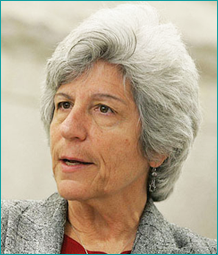A Minute with… is a segment that allows social workers to share their insights, stories, and perspectives from their field/ practice area. This month, we are featuring Joan Beder, DSW, Professor at Yeshiva University and her piece on the essential role that social workers play in providing the best care to families and service members, with a focus on the obligation that we have to learn and share knowledge to offer the most responsive and knowledgeable care to our military.
 I am a social work educator and for the last 25 years have endeavored to help graduate students in their quest to become social workers – the best social workers they can be! I love what I do. Over the years, I have welcomed the opportunity to challenge students with new ideas, different ways of viewing situations and inserting new content into courses.
I am a social work educator and for the last 25 years have endeavored to help graduate students in their quest to become social workers – the best social workers they can be! I love what I do. Over the years, I have welcomed the opportunity to challenge students with new ideas, different ways of viewing situations and inserting new content into courses.
About ten years ago the challenges faced by our military – our returnees from fighting the wars in which the United States has been engaged – captured my attention and demanded that this area of social work practice be shared with students. The needs of our military are especially important during wartime and beyond.
Our military is all volunteer; men and women make the decision to join the military for a variety of reasons but regardless of the reasons, the impact of that decision is felt throughout the family, community, and the broader society. Many who serve are sent into dangerous circumstances and will face physical and emotional challenges that can be life-altering. As a nation, we have an obligation to care for our military and that is where social workers become essential. Social work’s system perspective means that we look not only at the needs of the client (one who has served or is serving) but at all those who may be impacted by the service member’s experience. Our broad based approach to care defines a role for social workers that is all encompassing.
Civilian social workers must be trained to offer the best care to families and service members. As such, it is essential that social workers and social work students understand the worldview of the military, the culture of the military and the complex variety of experiences that challenge a service member and their family (however we define family). Many social workers have written extensively about the areas of care that are needed by service members and those close to the service member. My own texts and those of others are written in such a way that social work students can learn the nuances of behaviors and experiences that impact our military-related clients and learn appropriate interventions. In addition, NASW-NYS and other organizations have periodic conferences and webinars that inform care.
As social workers, we have an obligation to learn all we can to offer the most responsive and knowledgeable care to our military. Get with it! Take a course, a CEU class, or attend the conferences we offer. Our men and women and those close to them need our perspective and caring and have surely earned it.
